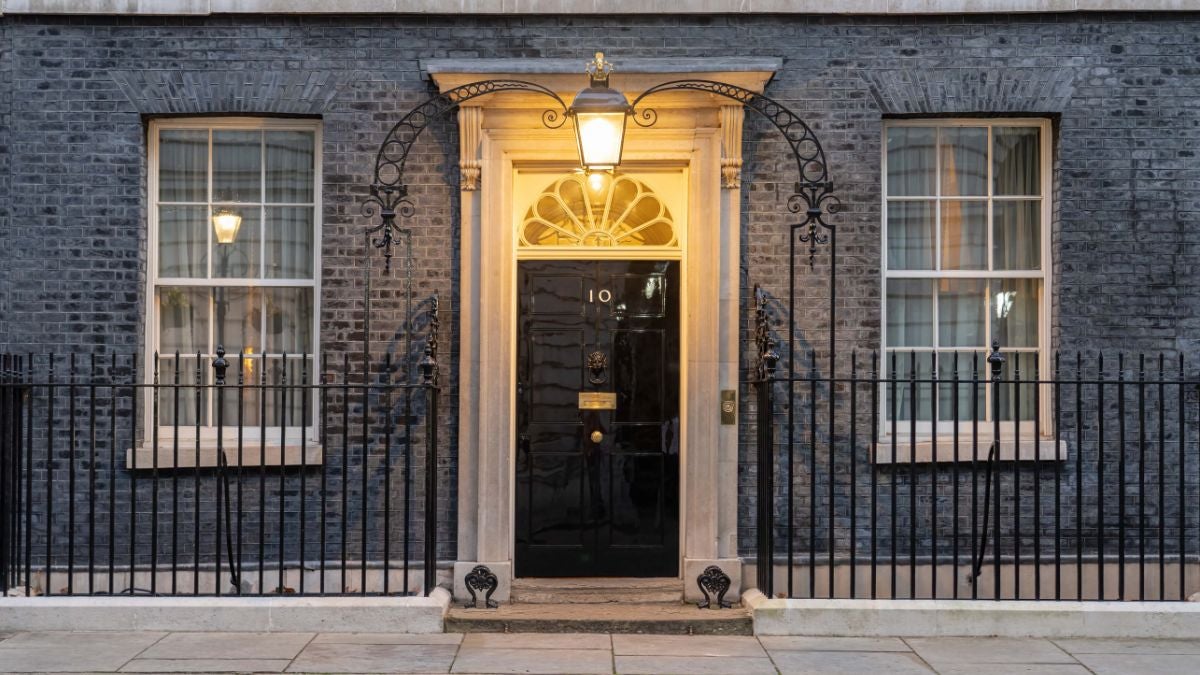
The final Conservative leadership hopefuls will face off in another vote later today as the party seeks to find a replacement for Boris Johnson in 10 Downing Street.
Rishi Sunak is the current favourite among fellow Conservative MPs with 118 votes, and his experience in the Treasury may be seen as an asset among business leaders who list inflation and the economy among their top concerns.
According to a survey from the Federation of Small Businesses (FSB), 89% of small firms say operating costs are up this year compared to last, with the rising cost of fuel and utilities contributing most to this increase.
FSB national chair Martin McTague claims that its members are looking for a prime ministerial candidate that is “unequivocally pro-business, pro-growth” as he warns, “growth can’t be put on hold for two months”.
He adds: “Firms desperately need help with the charges that hit them regardless of profitability: business rates, national insurance, utilities, fuel and those linked to supply chain disruption.”
Sunak is up against Penny Mordaunt and foreign secretary Liz Truss, who currently have the backing of 92 and 86 MPs respectively.
Tackling corporation tax
One potential policy raised by candidates for reducing the pressures on business is cancelling the proposed corporation tax increase. This was set to go up from 19% to 25% from 1 April next year.
Both Liz Truss and Penny Mordaunt have pledged significant tax cuts in a bid to win over Conservative party members, while Sunak has insisted he would wait before reducing taxes further.
The Institute for Fiscal Studies estimates that cancelling the planned rise in corporation tax for big companies would cost £17bn a year.
But head of Make UK Stephen Phipson claims that many businesses would not see any immediate return as a result. Commenting in the Financial Times, he says: “A lot of companies would not see any benefit of corporation tax cuts as they are not making any money.” Instead, the Confederation of British Industry says that it would like to see a focus on investment-targeted business tax.
In an open letter to the Conservative leadership candidates, its director-general Tony Danker writes: “Investment targeted business tax measures avoid significant inflation risk as they seek to materialise into economic activity over the year ahead and beyond, rather than right now in the midst of inflation.”
He suggests that reform to business rates and developing a successor to the super deduction, which allows companies to claim tax back on investment, should be a priority. Any changes to the headline corporation tax rate should be considered alongside all taxes that apply to businesses, including business rates and national insurance.
The Institute of Directors (IoD), which represents 25,000 business owners and board members, says that any reduction in business taxation would be welcome. But it has suggested that any corporation tax cuts could be tied to the government’s net-zero target to incentivise more sustainable actions.
Tory leadership hopeful’s climate commitments
The net-zero target has been another key debating point in the race for the Tory party leadership.
In the week that the Met Office issued its first red extreme heat warning, the candidates were asked in ITV’s leadership debate whether they would stick to the current 2050 net-zero target.
All candidates, except Kemi Badenoch (who is now out of the race) committed to the existing goal. Several answers, though, came with caveats.
Sunak warned that “if we go too hard and too fast, we will lose people”, while Truss said any climate change action shouldn’t harm people and businesses and promised a moratorium on the green levy.
In response to speculation that a new PM could seek to change the UK government’s net-zero commitments, the IoD’s senior policy adviser Alex Hall-Chen says: “Deviating from the UK’s existing emissions commitments and undermining its global leadership on this issue would be destabilising for UK business.”
Tory minister and COP26 president Alok Sharma has also threatened to resign if any future prime minister waters down the government’s key climate pledges.
‘Business leaders would have been watching from behind their hands’
After the last round of MP voting takes place later today, the final two candidates will vie for the votes of around 150,000 Conservative Party members over the summer.
It is clear that businesses want the focus of the next prime minister to be on growth and addressing the country’s current economic challenges.
But British Chambers of Commerce president Ruby McGregor-Smith is less than convinced that the remaining candidates are up to the task.
In an op-ed in the Telegraph, she said: “We are now saddled with a lame-duck government which cannot take the big decisions our economy needs.” Adding that, “business leaders across the UK would have been watching from behind their hands”.
McGregor-Smith claims that the current uncertainty will “further damage business confidence” and called for “strong fiscal policy and a long-term strategy for getting us back to economic growth”.
An FSB survey revealed that business owners’ confidence has fallen to -24.7, down more than 40 points from the same quarter last year and lower than the level seen when the omicron Covid variant began spreading at the end of last year.
Whoever takes over as prime minister will likely have their work cut out to restore faith among the business community.

The final Conservative leadership hopefuls will face off in another vote later today as the party seeks to find a replacement for Boris Johnson in 10 Downing Street.
Rishi Sunak is the current favourite among fellow Conservative MPs with 118 votes, and his experience in the Treasury may be seen as an asset among business leaders who list inflation and the economy among their top concerns.
According to a survey from the Federation of Small Businesses (FSB), 89% of small firms say operating costs are up this year compared to last, with the rising cost of fuel and utilities contributing most to this increase.
